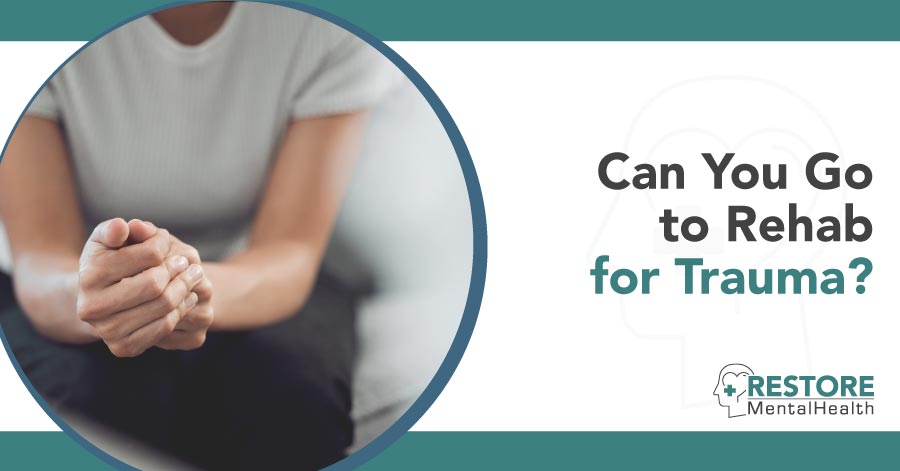Sometimes, society and the media downplay the impact of common mental health conditions on people, such as anxiety, depression and post-traumatic stress disorder (PTSD). With the rise in counseling and meditation apps, many people suffering from these conditions are strongly encouraged to use them as their sole source of support. Speaking to an online therapist and practicing deep breathing techniques have their merits. However, when you’re dealing with severe trauma, seeking PTSD inpatient treatment can be a necessary step toward healing and living a happier, more fulfilled life.
Can you go to rehab for PTSD? This article looks at the lasting impact trauma can have on a person while delving into the various treatment options that can help you recover from trauma.
What Life Events Can Cause Trauma?
Trauma is an emotional response to a severely distressing life event. Generally, shocking and distressing events that trigger a flight or fight response and make you fear for your life have the potential to become traumatic. Around 60% of men and 40% of women experience some form of trauma during their lives.
Not all bad experiences cause trauma, and not all trauma responses are the same. The same event may affect some people more than others, so it’s difficult to pinpoint exactly what causes it. However, three types of trauma may lead to lasting psychological impacts:
- Acute: This type of trauma may result from a single recent and distressing event, such as a car accident, sexual assault and a natural disaster.
- Chronic: People usually develop this type of trauma after being exposed to a series of prolonged negative experiences over a set period. Living through an illness like cancer, experiencing bullying and going to war can lead to chronic trauma. Chronic trauma often affects people for years after the event, which is why acute trauma sometimes develops into chronic trauma.
- Complex: When a person is exposed to many varied traumatic events, often in an interpersonal setting, they can develop complex trauma. People who live in conflict zones, experience long-term sexual assault or are in long-term abusive situations often develop this type of trauma.
Some trauma symptoms include anxiety, irritability, mood swings, insomnia fatigue and flashbacks to the event.
Are You Suffering From a Mental Health Condition Due to Your Trauma?
For some people, trauma can lead to developing conditions such as PTSD and complex PTSD. These serious conditions can impact your ability to create and maintain healthy relationships and function in your day-to-day life. Most people start developing PTSD symptoms within 3 months of experiencing something horrific. However, in some cases, symptoms can even take years to emerge.
Some symptoms of PTSD include:
- Intrusive thoughts about the event, nightmares and intense emotional reactions to anything reminding you of the event
- Avoidance of anything to do with the traumatic experience, such as refusing to go to locations that remind you of the experience or cutting off people you knew during that time
- Little interest in engaging in activities you once enjoyed
- Isolating yourself from your loved ones
- Constant negative thoughts about yourself
- Feelings of hopelessness
Some signs suggesting you may have complex PTSD are:
- Feeling hopeless about the future
- Struggling to keep your emotions in check
- Feeling detached and disassociated from your feelings and your body
- Struggling to maintain healthy relationships
- Intense feelings of shame and guilt
- Destructive behaviors, such as seeking unhealthy relationships and self-medicating with drugs and alcohol
Should You Try to Overcome Your Trauma Alone?
While there are self-care measures you can take, discussing your symptoms with a professional is an essential part of your recovery. Depending on how complex your needs are, mental health professionals might prescribe talk therapy, medication and, in most cases, a combination of both. For people experiencing profound complex trauma, a mental health professional may recommend inpatient PTSD treatment.
Speaking to a mental health professional experienced in helping people cope with trauma can help you develop coping mechanisms to better manage your symptoms. Some commonly used treatments to help people with PTSD include:
- Cognitive behavioral therapy: This type of psychotherapy can help trauma victims overcome their experiences with the help of cognitive restructuring and exposure therapy.
- Eye movement desensitization and reprocessing (EMDR): The goal of EMDR is to help people associate their traumatic event with a positive reaction.
- Mindfulness-based stress reduction: A relatively new type of therapy that some research suggests may be effective in treating people with PTSD.
- Medication: Antidepressant medications, such as selective serotonin reuptake inhibitors, are the most commonly prescribed to help ease some PTSD symptoms.
Is PTSD Inpatient Treatment the Right Option for You?
The type of treatment you receive depends on how profoundly your trauma has affected you. In some cases, seeking PTSD inpatient treatment can be what you need to move forward with your life. A residential care facility can give you space and time away from day-to-day worries and stresses. You can spend your time in a safe space where all your needs are met and take the time you need to start your journey toward recovery. You should speak to an experienced mental health professional who can help you decide whether inpatient PTSD care is the right choice to help you meet your goals.
You Can Live a Better Life
Coping with your mental health struggles, specifically trauma, can feel like an uphill battle. While getting past trauma is hard, there’s hope in the form of treatments that can help you to overcome your negative experiences and help you start living the life you deserve. It’s never too late to seek PTSD treatment. Trauma doesn’t have to define your entire life, and you can get better.
Here at Restore, we understand the complexities of what you’re going through. If you’re affected by trauma or think you may be suffering from PTSD, our team is here for you. Call us today at (877) 594-3566.


